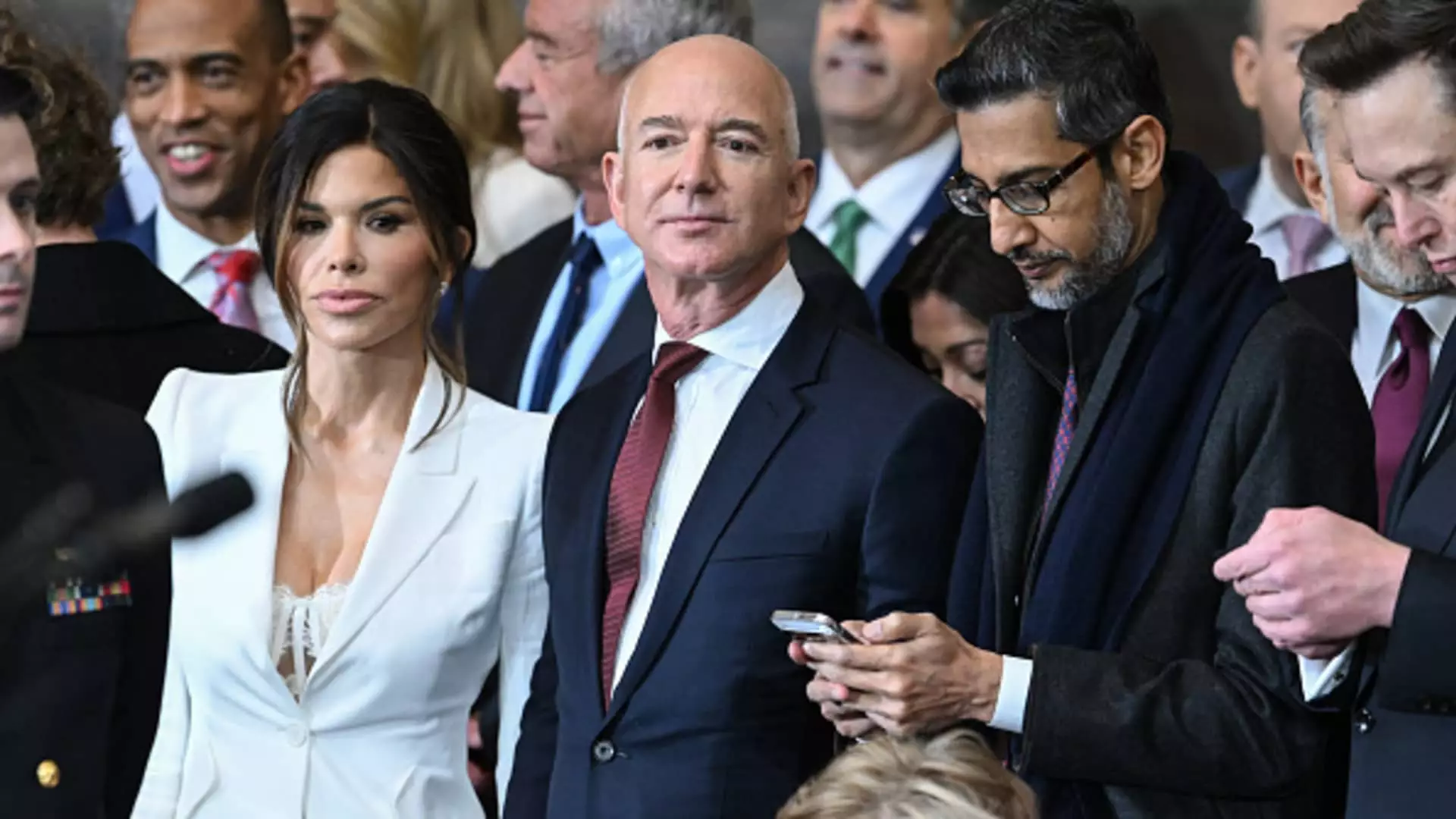The landscape of journalism has seen significant shifts driven by technological advancements and the rise of partisan divides. One of the latest and most notable changes comes from Jeff Bezos, the founder of Amazon and owner of The Washington Post, who recently announced a new editorial direction for the newspaper’s opinion pages. This decision has ignited intense debate, not only within the Post but also across the media landscape, as it raises crucial questions about journalistic integrity, freedom of expression, and the potential partisan manipulation of news.
In a recent email to staff, Bezos outlined a vision for the opinion pages that centers around the themes of “personal liberties and free markets.” This directive means that viewpoints that diverge significantly from these ideological tenets will no longer be considered for publication. Critics have pointed out that this approach represents a departure from the traditional role of a major newspaper, which has often prided itself on presenting a diverse array of opinions and fostering a space where conflicting ideas can be debated.
Such a unilateral shift raises concerns about who gets to shape public discourse. By explicitly stating that dissenting opinions will be published elsewhere, Bezos appears to assert control over the narrative that The Post will promote. In his message, he suggests that the Internet sufficiently offers a broad spectrum of opinions. However, this raises the question of whether the Post, with its significant influence, should effectively abdicate its responsibility to provide a platform for varied perspectives.
The response from within The Washington Post has been mixed, with significant discontent among current and former staff members. Editorial page editor David Shipley resigned in protest rather than lead the opinion section under the new policy, a decision Bezos claimed to support fully. Former editor Marty Baron has publicly expressed his disgust at this editorial shift, indicating a deep division among the paper’s leadership regarding journalistic standards and independence.
The repercussions have been tangible. A wave of resignations and public protests from prominent staffers, including political cartoonist Ann Telnaes and columnist Jennifer Rubin, signal a troubling rift between the ownership’s vision and the journalistic mission that the staff has long embraced. The very foundation of The Post has, for some, been shaken by this change, as its historical commitment to providing a diverse range of viewpoints appears to be threatened.
The timing of Bezos’s announcement, just weeks before the contentious 2024 presidential election, has not gone unnoticed. Many observers have speculated regarding the potential motivations behind the decision, particularly given the ongoing tensions between the publication and figures in Trump’s administration, who have frequently labeled the Post as “Fake News.” Bezos’s connections to Trump, highlighted by high-profile interactions and financial contributions to Trump’s inauguration, only exacerbate concerns that this editorial direction aims to align the paper more closely with partisan politics.
In light of the sweeping changes in the newspaper’s editorial policies, criticisms of Bezos extend beyond mere operational decisions; they suggest a broader, troubling trend where media ownership and personal ideologies intertwine. Journalism’s core principle of serving as a watchdog over powerful entities could be compromised if editorial decisions become heavily influenced by personal political affiliations.
Despite fears of encroachment into news coverage, some staff members, like military affairs reporter Dan Lamothe, have maintained that the integrity of the news section remains intact. They assert that the journalistic mission of accountability will persist irrespective of editorial changes in the opinion section. However, uncertainty lingers as remarks from chief economic reporter Jeff Stein suggest deep unease about potential overreach into all facets of reporting.
As conversations about the role of media in democracy evolve, the balance of providing robust debate alongside responsible journalism remains crucial. The implications of Bezos’s decision extend far beyond The Post itself; they represent a case study in how ownership dynamics can affect editorial freedom and the public’s right to diverse opinions.
The Washington Post stands at a significant crossroads with Jeff Bezos’s new editorial directive. While the stated goal is to champion certain ideological perspectives related to personal freedom and market economics, the elimination of counter-narratives raises profound concerns regarding democratic discourse. As dissent within the newsroom surfaces, one must consider the ethical responsibility of media outlets to provide a platform for a wide array of viewpoints. Ultimately, this controversy challenges the very essence of what it means to be a steward of credible journalism—an endeavor that requires not only a commitment to reporting the news but also a dedication to fostering a vibrant marketplace of ideas.

